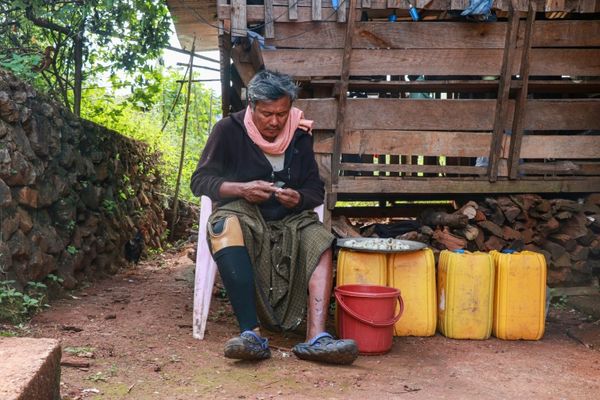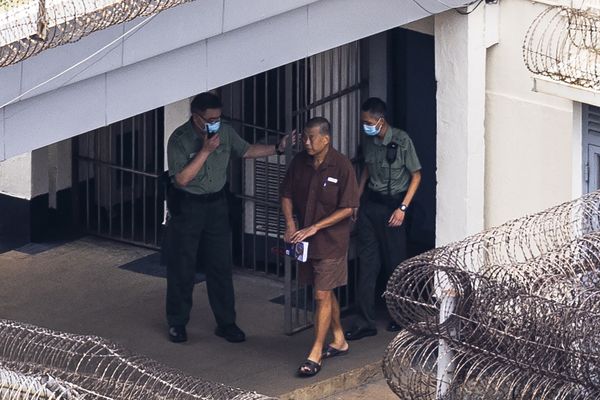
Six years ago, when she was 24, Sarah received an unexpected letter from the Home Office telling her she faced arrest and removal from the UK within seven days. She was so terrified that she climbed out of the back window of the house where she was living, taking her seven-year-old son with her, and they became homeless.
Sarah, who asked for her real name not to be published, had been in the UK since she arrived in 1994 as a two-year-old refugee from the Democratic Republic of the Congo. She had attended primary and secondary school in the UK and was working and paying taxes in London, but her uncertain immigration status had not been resolved when she was a child. As an adult she was required every three years to pay fees of about £1,000 to apply for visas that would allow her to remain. An error on her 2016 application form meant the visa was refused, but the fees were not refunded and she could not afford to reapply, and she slipped into immigration limbo. Even now, 28 years after arriving in the UK, she is still battling to get British citizenship.
For three years she was at the mercy of the hostile environment. Her bank account was closed, because she was unable to provide any proof that she had the right to live in the UK (she lost the £200 savings in her account). She was unable to work and was denied benefits because of her lack of documentation. She spent years feeling nervous about going out, worried that she might be picked up by immigration enforcement officers; she often felt too frightened to take her son to school.
“I became extremely paranoid. I couldn’t sleep properly – any sound would make me get up and look out of the window. From getting that letter, I don’t think I had a proper night’s sleep in about four years,” she said this week. She had no money, was unable to shop for food or clothes for herself or her son, and was entirely dependent on friends and family. Initially she was too frightened to stay with relatives, nervous about border officials tracking her down, but eventually she moved in with family members.
“For years I’ve needed other people to help support me and my son,” she said. “If it hadn’t been for my family’s support, I would have stayed homeless. I probably would have become a prostitute, on heroin, and it would have been the Home Office’s fault.”
She has no recollection of leaving the DRC – her earliest memory is of walking beneath a London flyover to nursery school – but knows her parents sent her to the UK with an aunt because they felt she would have a safer, more stable life in Britain, away from the conflict. Her mother has been trying to join her in the UK since 1994; she has made it to France but has not seen her daughter since Sarah was two. “She’s been saving money and is still trying to get through the immigration system to get somewhere closer to me,” Sarah said. Sarah’s childhood was difficult and she spent most of it in care; social workers neglected to regularise her immigration status.
The requirement to save large amounts of money for immigration fees has blighted her adult life. “I had to make choices that I didn’t want to make. I did things that I shouldn’t have done,” she said, crying at the memory. “The fear still lives with me.”
Despite having been born in the UK, her son is also fighting for British citizenship, a process that will be expensive to resolve. Sarah is working as a carer and remains in debt from the period when she was out of work; she knows she will struggle to pay the fees.
“I do consider myself British, I’ve lived here since I was two, but it is difficult to consider yourself part of something that you’ve been rejected from.”
In 2020 Sarah’s lawyer received an email from the Home Office acknowledging that she should have been granted indefinite leave to remain years earlier, and promising to rectify the situation. However, Sarah is still unable to access student finance, and had to leave a university course in healthcare management this year because she is not yet eligible for a loan.
Sarah’s attempts to rectify her Home Office status have been supported by the Joint Council for the Welfare of Immigrants. Paola Uccellari, the charity’s interim executive director, said: “Over the past 10 years this government’s hostile immigration rules have pushed tens of thousands of people into a living nightmare of legal limbo, fear and destitution. Every month we speak to people like Sarah who have lived here for decades but who have been robbed of their rights and status by this government, simply because they couldn’t afford extortionate visa fees or because they made a small mistake on a form.”
A Home Office spokesperson said: “The government remains committed to having an immigration system which provides effective control, but which is also fair, humane and fully compliant with the law.
“Our approach is subject to continuous review, and building on the Windrush legacy, we have adopted a people facing and individual approach and introduced new safeguards to our processes.”







